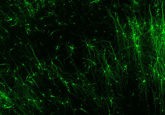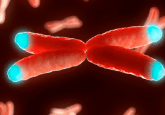Cephalopods edit their RNA to acclimate to water temperature

To adapt to changes in water temperature, cephalopods extensively recode codons in their brain to alter protein function.
Coleoid cephalopods (octopus, squid and cuttlefish) are unable to thermoregulate and rely on their environment to maintain internal temperatures. A new study, led by researchers at the University of Chicago Marine Biological Laboratory (MA, USA) and Tel Aviv University (Israel), has found that cephalopods change the function of some proteins in order to acclimate to the temperature of their surrounding environment.
“We’re used to thinking all living things are preprogrammed from birth with a certain set of instructions,” said Joshua Rosenthal (Marine Biological Laboratory). “The idea the environment can influence genetic information, as we’ve shown in cephalopods, is a new concept.”
The most common type of RNA editing is known as A-to-I editing, where an adenosine molecule is substituted for inosine, which behaves similarly to guanosine. This process occurs in other animals but largely at non-coding sites. In 2015, Rosenthal and his colleagues showed that squids use A-to-I protein-altering RNA editing at a large scale, finding that 60% of the RNA transcripts had been edited in the squid brain.
“A big question for us was, ‘What are they using it for?’”, commented Rosenthal.
 Are cephalopods making a comeback in neuroscience?
Are cephalopods making a comeback in neuroscience?
Guest writer and neuroscientist Danbee Kim write about the history of cephalopods as a model species in neuroscience, a species that has been admired and studied ever since the time of Aristotl.
Modifications in RNA are only temporary, so the researchers speculated that cephalopods could be using this to acclimate to their environment. The current study investigated RNA editing in response to changes in temperature, a factor that can impact all physiological processes as it governs the activity of enzymes that drive essential physiological processes.
To see the effects of temperature, the researchers collected and acclimatized California two-spot octopuses (Octopus bimaculoides) to temperatures at the warm and cool end of their natural range, 22°C/72°F and 13°C/55°F. They then extracted and sequenced RNA from the stellate ganglia, a motor center in the peripheral nervous system, where RNA editing had previously been found to occur.
In the cold tank, an increase in protein-altering one-letter changes at 13,285 sites was recorded, and in the warm tank an increase at 550 sites. This was also confirmed in RNA analyses of wild octopuses. The mechanism through which cephalopods can achieve this remains unclear, as well as why the change is more dramatic when responding to cold temperatures.
The researchers also examined how RNA-editing changed the function of two proteins known to be essential for neural function in octopuses: kinesin-1, a protein that moves cargo along the neuron branches, and synaptotagmin, which enables communication between neurons through Ca2+ mediated neurotransmitter release. The RNA modifications changed the rate at which kinesin-1 travels and decreased the binding affinity of synaptotagmin, making it less responsive.
Further experiments suggest that RNA editing may be more beneficial for adjusting to gradual temperature changes, for example, changes in season, but not for rapid changes like moving from warm surface water to deeper and colder depths.
RNA editing is likely being used to change cephalopod behavior in ways beyond acclimatizing to water temperature and could explain their sophisticated behaviors, like their ability to mimic textures and colors to camouflage themselves and solve puzzles. Rosenthal commented, “What mechanisms do they use to create this complexity?” I believe that RNA editing is one of them.”





